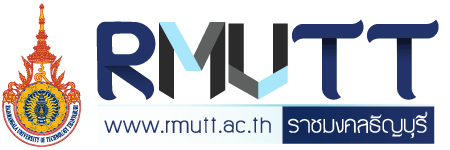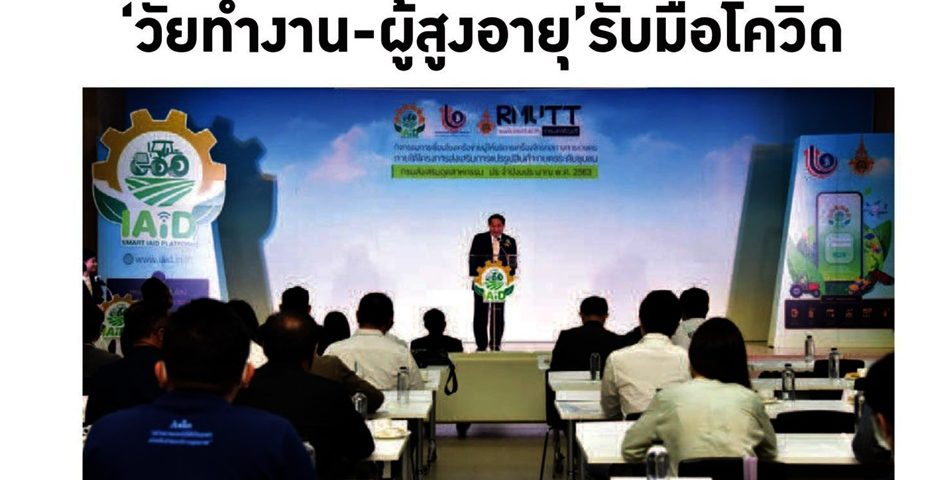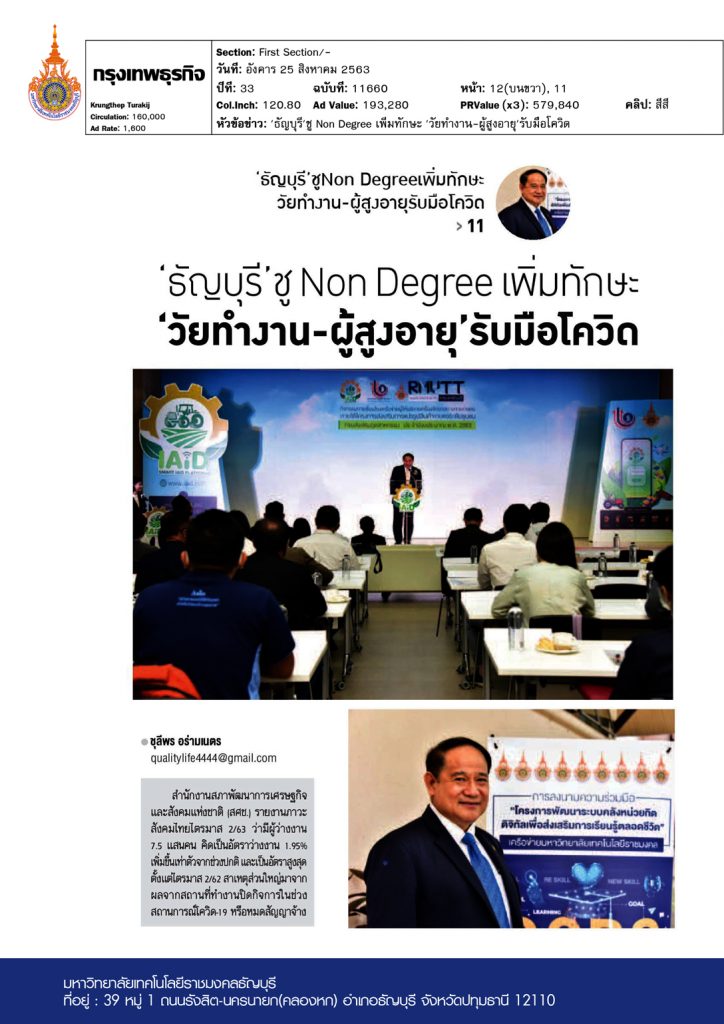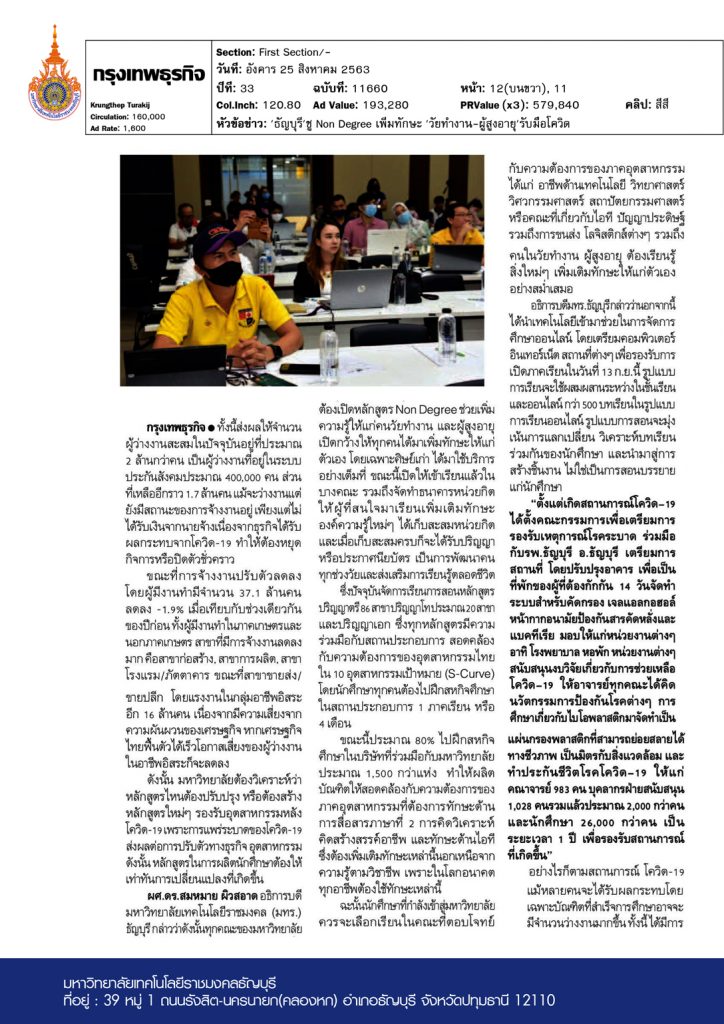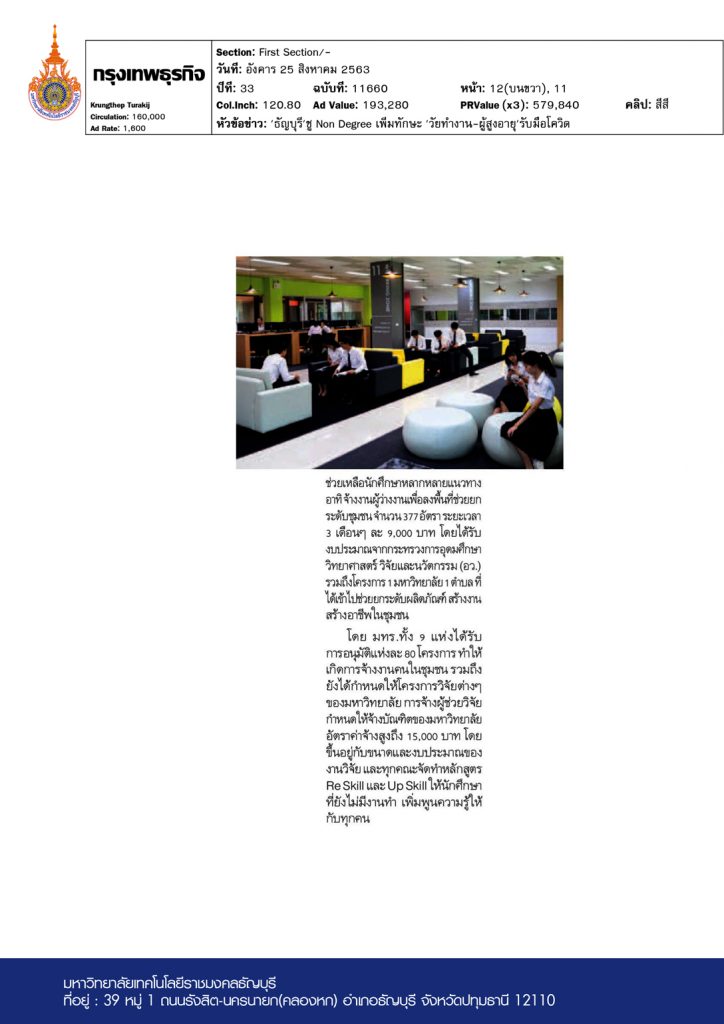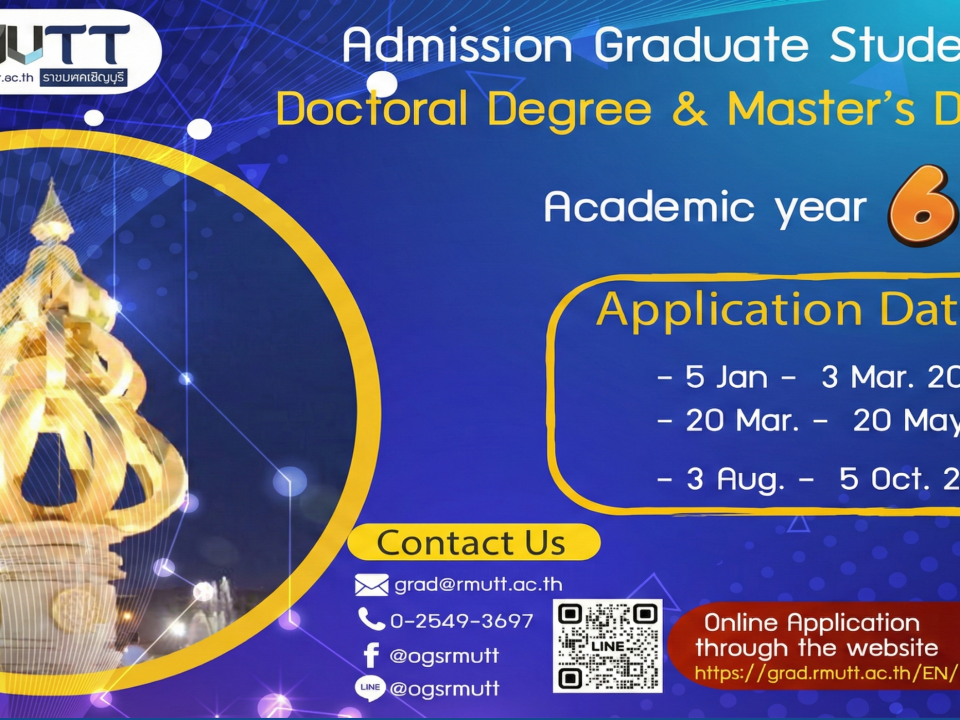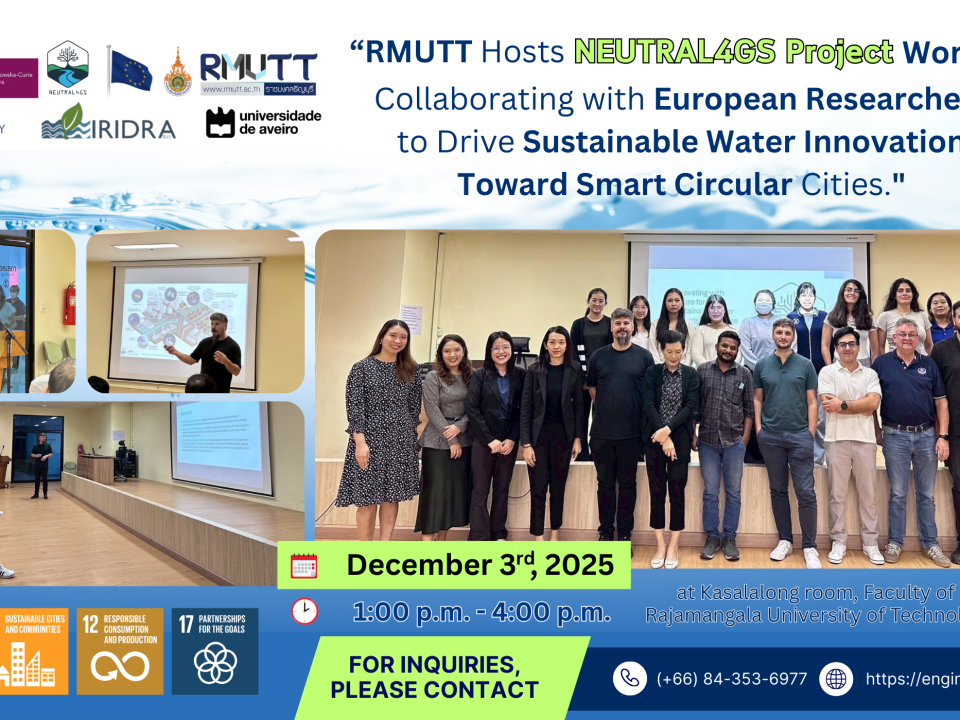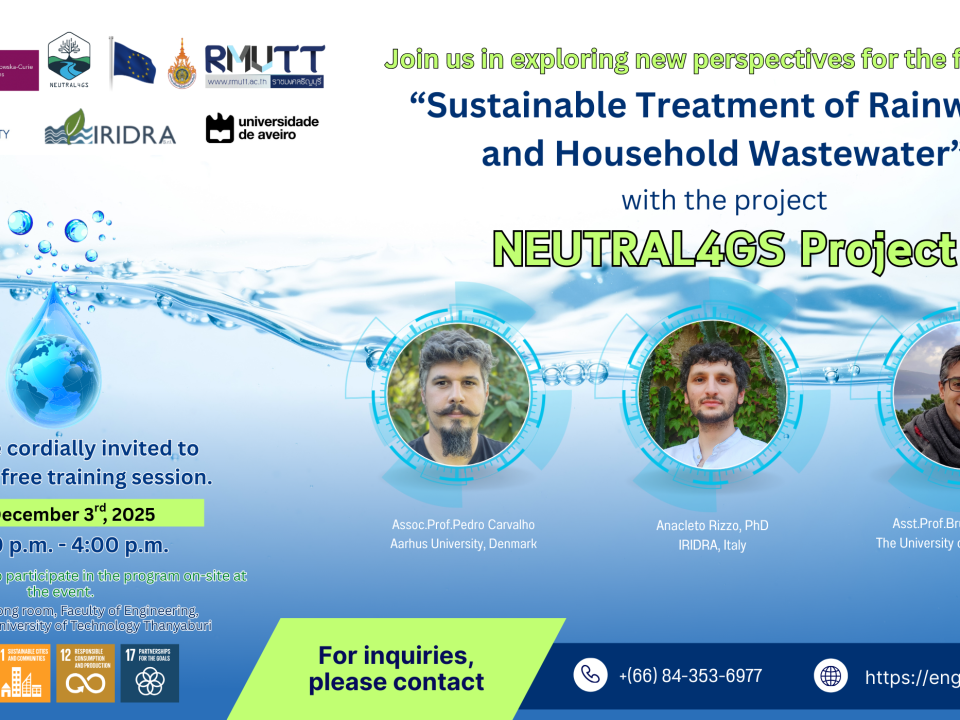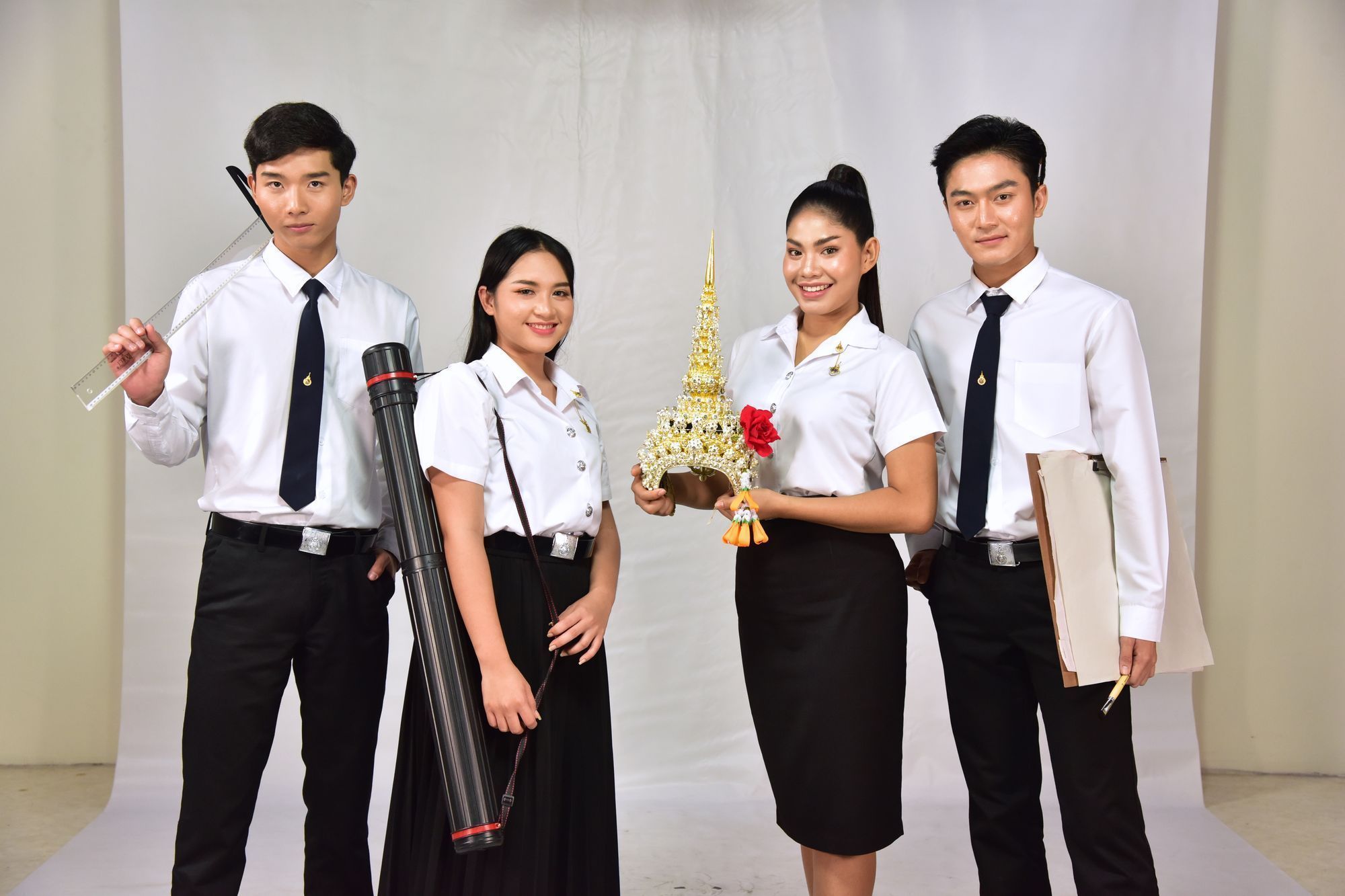
The Faculty of Architecture’s action plan preparation project to aim for a successful organization with OKRs (Objective and Key Results)
23/11/2020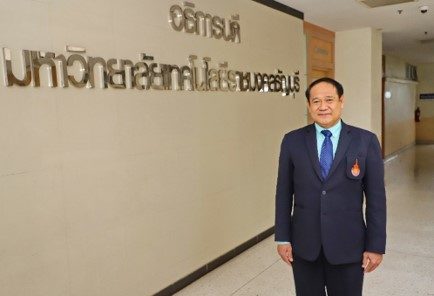
“Creating Opportunities- Making Adaptation” RMUTT’s Concept for Fighting COVID-19 crisis
25/11/2020‘RMUTT ” offers ‘Non-Degree’ programs to increase young and old employees work skills during the ongoing Covid-19 situation
The Office of the National Economic and Social Development Council (NESDB) reported that the rate of unemployment in Thailand during the second quarter of the year 2020 had reached up to 750,000 people approximately 1.95% twice as much as usual. The main reason why unemployment rates parachuted was the impact of workplace closure during the COVID-19 pandemic or non-renewal of employment contract. Accordingly, the current cumulative number of the unemployed is approximately 2 million people, 300,000 of them were covered under the Social Security Program and the rest of 1.7 million lost their jobs without getting unemployment compensation as a result of temporary or permanent closure of businesses. Moreover, the employment rates had continuously declined by 1.9 % in the comparison with the same quarter in the previous year while 37.1 million people were still employed. For the employment rates in non- agricultural and agricultural sectors including construction, production, hotel and restaurant, the numbers had constantly been decreasing and at the same time, the rest 16 million freelancers in the wholesaling and retailing industry might be facing high economic risks. Should the Thai economic improve, the higher demand of freelancers would be increasing. Thus, RMUTT reviewed, revised, and developed new curricula on a regular basis for its students, better to serve the changing needs of industries in skilled workers after COVID-19 situation improves.
Prof. Dr. Sommai Pivsa-Art, President of Rajamangala University of Technology (RMUTT), revealed that all faculties of the university will be offering non degree programs to help increase young and old employees work performance particularly those who were university’s alumni. Currently, several faculties had already been offering their non-degree courses and also took part in digital credit bank system in order to help student fulfill both their needs of education and provide opportunities to earn academic qualifications including academic degrees and certificates. The academic credit bank system was aimed to be an effective medium for lifelong learning in higher education which included 86 undergraduate programs, 20 graduate programs and PhD programs. The programs were coordinated by affiliate providers cover 10 targeted industries (S-curve) and include co-operative education opportunities students to obtain 4 months or 1 academic semester in professional work experience.
At the present time, 80 % of RMUTT students have been training through co-operative education program between 1,500 private companies and RMUTT. The program would facilitate students in terms of future career education such as second language learning while development of competent workforce including analytical skills, creativity and IT skills to industrial sectors had also been offered. It could be said that these skills would be vital for student’s future career, and thus, RMUTT would be offering its academic programs include a variety of pedagogical activities including technology, science, engineering, architecture, artificial intelligent as well as logistics. Moreover, RMUTT president also revealed that the university had been making their strides to enhance its online learning technologically including computer system, internet network, and facilities so as to be preparing for first day of class semester on this September 13. All classes would be integrated with online teaching to enrich classrooms that could create well-structured learning on student-oriented activities which gave them more autonomy while project work as a tool to develop skills in learners. Since the Covid-19 outbreaks, the university committees had been preparing frontline healthcare facilities for Covid-19 patients during quarantine and medical isolation by collaborating with Thanyaburi Hospital in Thanyaburi district. Moreover, RMUTT had also been organizing Covid-19 health screening system and providing alcohol gel, anti-bacterial masks to different government agencies consisting of hospitals and residences. Various departments of RMUTT had been supporting research budgets on COVID-19 on covid-19 research and innovation to all faculty members to develop innovations to prevent and protect the pandemic such as a study of bio-plastics to create a biodegradable plastic filter which was environment friendly. The university had also offered covid-19 comprehensive insurance with coverage lasting 1-year to all university employees including 983 university lecturers and 1,028 employees as well as all 26,000 students. Furthermore, RMUTT had also planned to help graduates entering the workforce during COVID-19 situation by offering them 377 job positions for 9,000 baht/month for 3 months in local entrepreneurship stimulus program or One Tambon One Product (OTOP). Having received financial budgets from Ministry of Higher Education, Science, Research and Innovation, an integrated economic and social improvement program for the sub-district or the 1 Tambon 1 University project had been offered to enhance Thai local products, offer students jobs, and create careers in the community. All 9 RMUTT campuses had been approved to offer 80 research projects for university researchers, local university employees and people in the communities around the campuses. The participants of the program had received income of up 15,000 baht per month depending on the project’s budgets. To complete the programs, all participants in all departments must complete comprehensive curriculum of Re-skills and Up-skills to help unemployed graduates.
